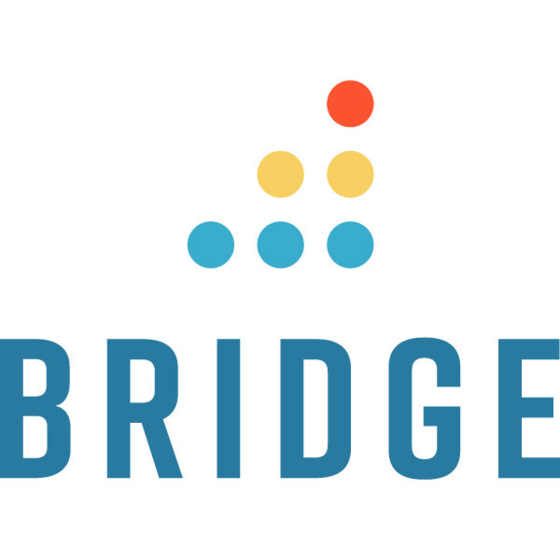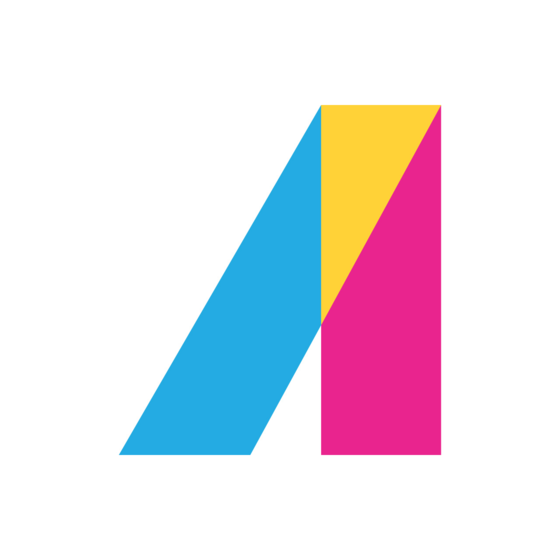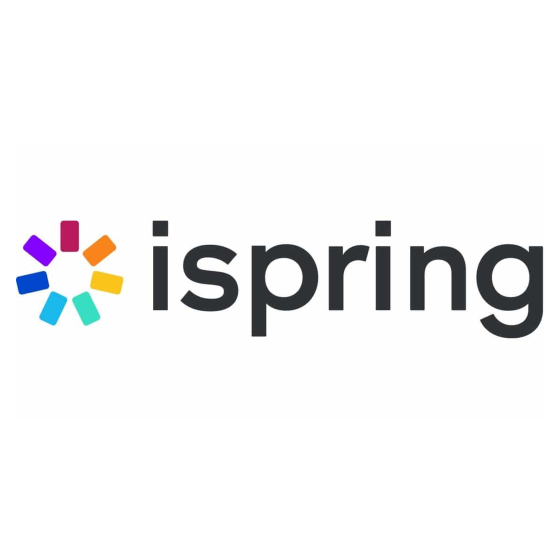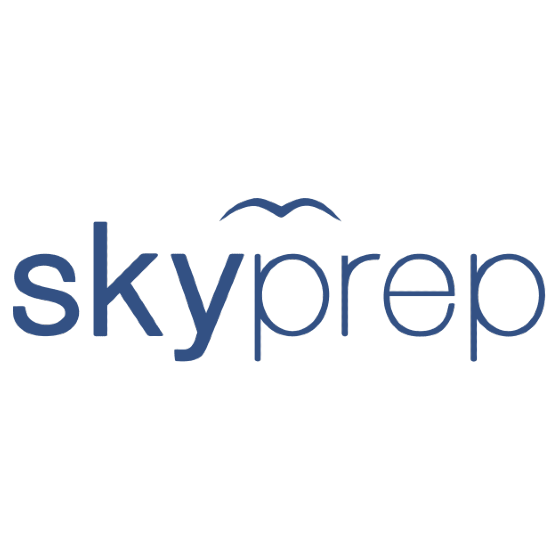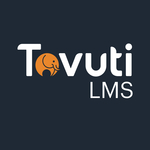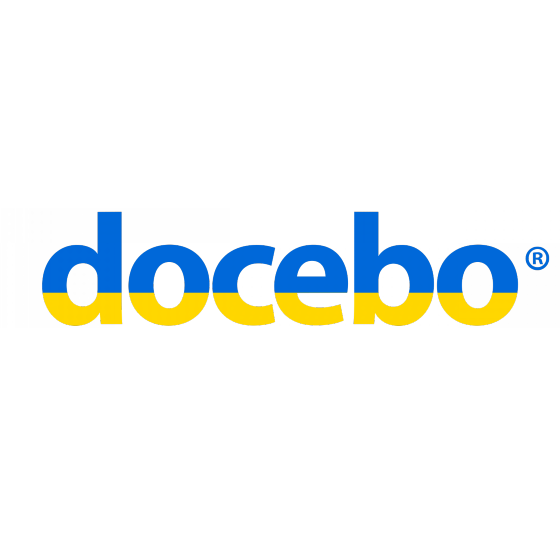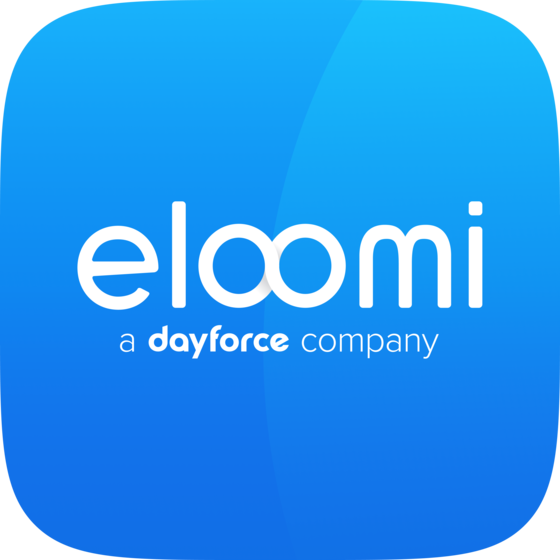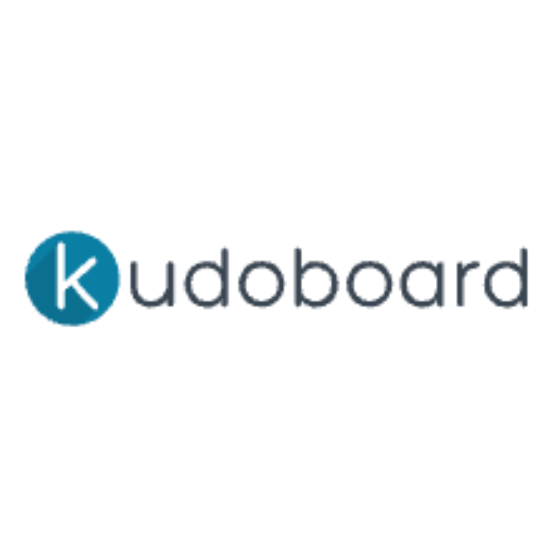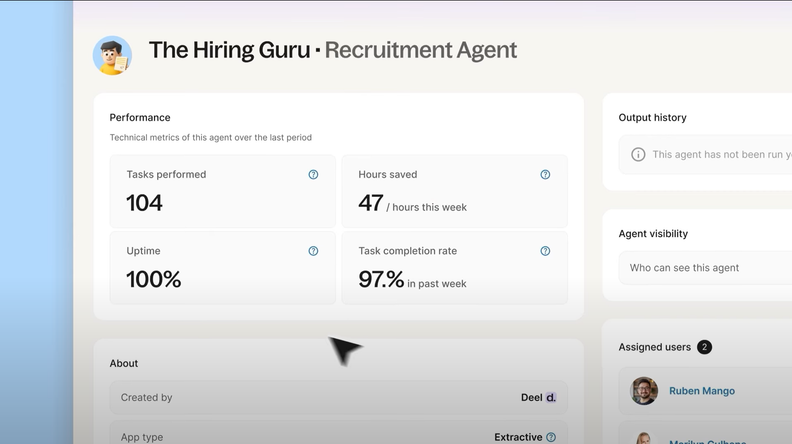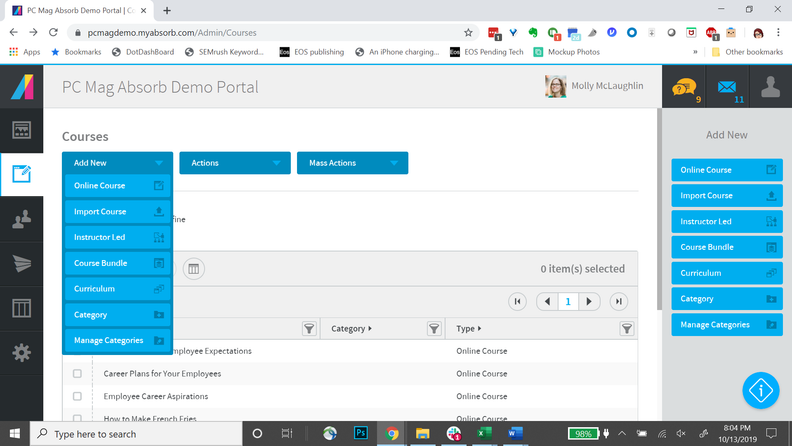10 Best Corporate Learning Management Systems Shortlist
Here's my pick of the 10 best software from the 20 tools reviewed.
The best corporate learning management systems help HR professionals deliver consistent, scalable training across the organization—whether it's onboarding new hires, maintaining compliance, or developing employee skills for long-term growth.
If you're still relying on spreadsheets, email reminders, or outdated tools to manage training, you’re likely struggling with inefficiencies, poor engagement, and limited visibility into learning outcomes. Or maybe you already have an LMS, but it’s clunky, hard to customize, and not delivering the results your team needs.
In this guide, I’ll share the best corporate learning management systems based on my hands-on experience managing internal training programs for 9 years and evaluating L&D tools for 3+ years. My goal is to help you cut through the noise and find a solution that truly meets your learning and development needs.
You Can Trust Our HR Software Reviews
We've been testing and reviewing HR software since 2019. As HR professionals ourselves, we know how critical and difficult it is to make the right decision when selecting software.
We invest in deep research to help our audience make better software purchasing decisions. We've tested more than 2,000 tools for different HR use cases and written over 1,000 comprehensive software reviews. Learn how we stay transparent, and take a look at our software review methodology.
Best Corporate LMS Systems: Comparison Chart
This comparison chart summarizes pricing, trial, and demo details for my top corporate LMS software selections to help you find the best business LMS for your budget and needs.
| Tool | Best For | Trial Info | Price | ||
|---|---|---|---|---|---|
| 1 | Best AI-powered learning management system for global teams | Free trial + demo available | From $29/month | Website | |
| 2 | Best cloud-based LMS with an auto-enrollment feature | Free demo available | Pricing upon request | Website | |
| 3 | Best for advanced course authoring | Free demo available | Pricing upon request | Website | |
| 4 | Best for a holistic learning management software solution | Free trial + free demo | Pricing upon request | Website | |
| 5 | Best for a robust LMS featuring a mixture of training scenarios | Free trial + demo available | From $3.70/user/month (billed annually) | Website | |
| 6 | Best corporate learning management system for ease of use | 14-day free trial | Pricing upon request | Website | |
| 7 | Best for a combined learning, HR, and performance management platform | Free demo available | Pricing upon request | Website | |
| 8 | Best corporate training LMS with an extensive, built-in course library | Free demo available. | Pricing upon request | Website | |
| 9 | A corporate LMS system designed to maximize user engagement | Free demo available | Pricing upon request | Website | |
| 10 | Best for an all-in-one learning and people development platform | Free demo available | Pricing upon request | Website |
-

Kudoboard
Visit WebsiteThis is an aggregated rating for this tool including ratings from Crozdesk users and ratings from other sites.4.8 -

Native Teams
Visit WebsiteThis is an aggregated rating for this tool including ratings from Crozdesk users and ratings from other sites.4.9 -

Rippling
Visit WebsiteThis is an aggregated rating for this tool including ratings from Crozdesk users and ratings from other sites.4.8
Best Corporate Learning Management System Reviews
Explore each LMS in detail to find the best fit for your training goals. I’ve highlighted top use cases, standout features, and user interface snapshots to help you compare tools at a glance.
Deel Engage is an innovative talent development platform tailored for businesses seeking to elevate employee training, performance management, and career development processes. It combines an intuitive learning management system, AI-driven career progression frameworks, and highly customizable performance reviews into one cohesive solution.
As a corporate LMS, Deel excels with its AI-powered course creation and seamless automation features. The AI capabilities enable quick development of comprehensive training programs through drag-and-drop tools, integrating multimedia elements and interactive quizzes. This efficiency is crucial for corporations needing to deploy consistent training across diverse teams.
Furthermore, its automation feature assigns courses based on specific criteria, such as employee start dates and roles, ensuring compliance and consistency without manual oversight, which is essential for large corporate environments.
Beyond its core LMS capabilities, Deel Engage offers robust performance management tools that are particularly beneficial for corporate settings. Its customizable performance review system includes 360° feedback and advanced analytics like heatmaps and 9-box grids, which help identify skill gaps and track employee progress. This level of detail supports data-driven decision-making for future training initiatives and other areas of corporate talent management.
Deel integrates with BambooHR, Personio, Workday, and other HR systems. It also offers a Slack integration and an API for custom integrations. Pricing is offered at a flat rate with a free demo available.
New Product Updates from Deel
Introducing Deel AI Workforce
Deel has launched the AI Workforce, a set of specialized agents designed to handle repetitive HR, payroll, and compliance tasks with speed and accuracy. These AI agents don’t just assist—they execute tasks from start to finish. For more information, visit Deel's official site.
Best cloud-based LMS with an auto-enrollment feature
Mitratech Perform Learn is a cloud-based learning management system that helps businesses train and develop employees, allowing employees to learn and upskill from anywhere.
Their learning and development platform provides online access to digital learning courses, making it easy for employees to find the resources they need to improve their skills. It includes a library of pre-built courses and the ability to create custom ones. To further assess employee learning, it also includes features like quizzes and performance tracking. Other content delivery formats include social learning, webinars, and gamified e-learning.
Mitratech Perform's reporting capabilities inform users on the state of their training initiatives in real time, so they can see what their employees know and identify any problem areas. Their reports also track trends and highlight course content that may need updating.
Their auto-enrollment feature eliminates the manual effort of individually enrolling employees and ensures that everyone is enrolled in the appropriate course. It can also be set up to enroll employees in courses as soon as they're added to the system.
Mitratech Perform Learn integrates with other business applications, such as HR systems and CRM software, allowing businesses to track employee performance across multiple data points to gain a complete picture of employee development. It also integrates with content creation tools like Canva, Vimeo, and HTML, allowing instructional designers to create rich, engaging learning experiences that meet the needs of learners of all levels.
Bridge is a learning management system (LMS) designed to enhance employee development and streamline training processes. It offers tools for creating, sharing, and managing course content, making it easier to train and upskill employees, deliver compliance training, and support manager enablement programs.
One reason I chose Bridge is its advanced course authoring capabilities. You can easily create engaging courses from scratch or import existing content, allowing for a tailored learning experience that meets your organization's specific needs. This flexibility ensures your team receives relevant and effective training.
Another standout feature is Bridge's reporting and analytics tools. As an administrator, you can track course completion rates, monitor learner engagement, and identify popular content types. These insights help you understand the effectiveness of your training programs and make informed decisions to improve them.
Other features include a mobile app that lets your team access training materials on the go, advanced media capabilities for centralized file storage with video recording and editing, and automated learning paths to personalize training experiences. These features ensure your team can learn anytime, anywhere while staying aligned with personal and organizational goals.
Integrations include LinkedIn Learning, OpenSesame, Khan Academy, SlideShare, Slack, Dropbox, YouTube, Vimeo, Kaltura, Panopto, Credly, and Shopify.
New Product Updates from Bridge
Bridge Report Club: Elevating Training ROI
Bridge introduces the Report Club for L&D professionals, offering expert consultation, custom reports, and more. For more information, visit Bridge's official site.
Absorb LMS is a cloud-based learning management system designed to boost engagement and learning outcomes. It can be used to train internal employees, external audiences, or worldwide partners.
Admins can create unique branding for each department or customer. The user interface is responsive, so it works effectively on any device.
The software provides e-commerce features out of the box and also supports xAPI, SCORM, and AICC. Absorb LMS is compliant with SOC 2 Type 2, GDPR, and AWS server requirements.
This tool integrates with third-party software such as BambooHR, Namely, Salesforce, and Zoom.
New Product Updates from Absorb LMS
Absorb LMS Introduces Multiple Course Catalogs for Targeted eCommerce Marketing
Absorb LMS now supports separate course catalogs for eCommerce, enabling multiple public dashboards and targeted course marketing. For more information, visit the Absorb Help Center.
Best for a robust LMS featuring a mixture of training scenarios
iSpring Learn is a cloud-based LMS designed to help you launch a variety of courses, including onboarding courses, six-month individual development programs, and other corporate training, quickly and with minimal effort.
The platform stands out for its authoring capabilities, which allow any SME to create guides and tutorials directly in the LMS using an intuitive course builder. You can also upload existing content or build specific learning paths for each department. Such learning paths can be easily organized by topic or week, with the subsequent module only accessible after the previous one has been completed.
iSpring Learn additionally comes bundled with a desktop authoring tool for creating more engaging learning content, including advanced courses, training videos, and assessments, and seamlessly uploading them to the platform.
Training automation and smart analytics features also help managers monitor how employees are progressing and assess the effectiveness of employee training programs. In addition, content reports show how individual courses and lessons are being received.
This tool integrates with HR, enterprise resource planning (ERP), business intelligence (BI), and other corporate systems via a REST/SOAP API and single sign-on.
SkyPrep is an online learning software with an LMS that caters to a corporate workforce. It lets businesses create custom learning paths for employees or groups, assign specific courses and modules, track employee progress, and measure the results of training programs. SkyPrep is customizable, allowing users to tailor their learning portals to match their company branding.
Their software includes a selection of premade courses to help businesses jumpstart their employee's learning journey. Or you can import existing courses or develop your own from scratch, including instructor-led training sessions or courses with multi-media formats. You can also share courses between groups and duplicate the same content across multiple portals. Its multi-tenant LMS feature lets users efficiently manage sub-platforms for diverse groups of learners.
Admin users can create workflows with the help of standardized tests and course checklists, and set up rewards and incentives for employees to encourage healthy competition between peers. Administrators will also appreciate its auto-enrollment feature that minimizes workload by enrolling employees based on their user properties. Admin users can also set up alerts and notifications in the platform for triggers such as deadlines and incomplete courses.
SkyPrep's reporting and analytics capabilities allow users to track KPIs and provide insights into the performance of employees and courses. Administers can use filters and custom data fields to customize their built-in reports, which can be scheduled to send out daily, weekly, or monthly.
SkyPrep integrates with ADP, Google, Microsoft Office 365, PayPal, Salesforce, Zoom, and more. Additional integrations can be accessed through a paid plan with Zapier.
Best for a combined learning, HR, and performance management platform
Kallidus Learn is a cloud-based LMS that incorporates HR and applicant tracking capabilities. Features include certification, compliance management, a built-in course library, and SCORM support.
Learners can search through course cards to find the relevant online course content and initiate training. They may conduct training either in the office or off-site, using whatever device they prefer.
Managers can also access a calendar view, an overview of employee progress, and detailed data on individuals or courses. They also have the option to send positive alerts to employees who have completed required courses.
This tool integrates with software such as Natural HR, Reward Gateway, Tazio, and Yammer.
Tovuti
Best corporate training LMS with an extensive, built-in course library
Tovuti is an all-in-one, cloud-based LMS designed to help organizations create, deliver, and track online education. Features include course authoring, gamification, interactive content, live video conferencing, and social communities.
The software includes a full content management system (CMS) and the ability to host multiple websites. Learning portals can be white-labeled to remove the Tovuti branding and allow customization with new logos, colors, and fonts.
Tovuti comes with an existing library of 7,000 courses covering topics such as HR training, compliance, and professional development. The training material is designed to be social, interactive, and gamified to encourage learning and progress.
This tool offers an open API and can integrate with most applications using connecting tools such as Zapier.
Docebo’s AI-based learning suite helps you create and manage content, deliver training, and measure the business impact of your education programs. You can use this tool to deliver customer, employee, or partner training.
Features include course authoring, assessments, quizzes, and instructor-led training. Learning paths are available on demand, and instructors can manage existing courses or create additional training content from scratch.
You can create multiple user types, send notifications, and schedule training. The platform also includes detailed analytics, and a white-label option is available too.
This tool integrates with business software such as Box, Dropbox, Eventbrite, and GoToMeeting.
Docebo offers customized pricing and a free demo on request.
eloomi
Best for an all-in-one learning and people development platform
eloomi is a cloud-based learning management and people development platform that covers internal learning and training, performance management including related upskilling, custom course building, and report generation.
In addition to their LMS functions, their all-in-one platform includes a Skills Intelligence hub that helps you understand the skill landscape of your entire workforce, so you can create meaningful training programs to target specific competencies that need further development.
Employees can take courses in a classroom setting or via webinar, with managers getting feedback either way. Instructional videos are integrated into the platform to help users complete training successfully. The authoring tools allow you to create unique and interactive e-learning experiences with multiple formats, export SCORM e-learning files, and maintain a complete media repository.
Managers can track employee progress against key performance indicators (KPI), track improvement, and offer online coaching. Other features include onboarding training, compliance education, a course builder module, and gamified learning.
Integrations are available with ADP, SAP SuccessFactors, Google Workspace, Workday and others. They also offer an API for custom integrations, as well.
Other Corporate LMS Systems
Here are a few more options that didn’t make the best corporate LMS software list but are still worth considering:
- Kallidus Sapling
Corporate LMS for employee development and compliance training
- WeSchool
Learning Management System to simplify corporate training
- EdCast
A talent experience platform for attracting, training, and retaining employees
- Cornerstone OnDemand
Offers a personalized learning experience for every employee
- SAP SuccessFactors
A corporate learning management system for building a continuous learning culture
- SAI360
For industry-specific compliance training and reporting
- Constructor Tech
A corporate LMS that fosters active learning with complex topics
- Brainier LMS
A highly-customizable corporate training & learning platform
- Learn Amp
For a comprehensive LMS with tailored learning pathways
- LMS365
A learning platform built into Microsoft 365 Teams
Related HR Software Reviews
If you still haven't found what you're looking for here, check out these other related tools that we've tested and evaluated:
- HR Software
- Payroll Software
- Recruiting Software
- Employer of Record Services
- Applicant Tracking Systems
- Workforce Management Software
Selection Criteria for a Corporate LMS
To choose the best corporate learning management systems, I evaluated a wide range of tools that address common business needs and solve frequent pain points inherent with running internal learning, training, and development programs. Each LMS was assessed using standardized criteria to highlight the top performers.
Here’s a quick overview of what I looked for:
Core Functionalities (25% of total score): To be considered for inclusion in this list, each solution had to fulfill these common use cases first:
- Delivering self-paced learning modules to employees
- Assigning and tracking mandatory compliance training
- Creating interactive and multimedia-rich courses
- Generating detailed progress reports for team managers
- Managing user roles and permissions for learners and administrators
Additional Standout Features (25% of total score): To help me find the best software out of numerous available options, I also kept a keen eye out for unique features, including the following:
- AI-driven personalized learning recommendations that match content to employee skill gaps
- Integrated collaboration tools like live Q&A sessions, forums, or chat features
- Microlearning capabilities to deliver bite-sized, focused lessons
- Custom branding options to align training platforms with company identity
- Augmented reality or VR training modules for immersive learning
Usability (10% of total score): To evaluate the usability of each system, I considered the following:
- Intuitive dashboards that allow users to navigate and locate courses easily
- Drag-and-drop course creation tools to simplify content management
- Seamless mobile interfaces for learning on the go
- Role-based access controls that are easy to configure for learners, managers, and administrators
Onboarding (10% of total score): To get a sense of each software provider's customer onboarding process, I considered the following factors:
- Availability of training videos, interactive tutorials, or product tours
- Migration tools that streamline the transfer of existing training materials
- Pre-built templates for course creation to accelerate implementation
- Dedicated onboarding specialists or support for initial setup
Customer Support (10% of total score): To evaluate the level of customer support each vendor offered, I considered the following:
- 24/7 availability of support through channels like chat, email, or phone
- Access to detailed documentation, FAQs, and a knowledge base
- Responsiveness and resolution time for reported issues
- Availability of community forums for peer-to-peer assistance
Value for Price (10% of total score): To gauge the value of each software, I considered the following factors:
- Flexible pricing plans based on the size of the organization or user base
- Whether all key features are included in standard pricing tiers
- Transparency in pricing with no hidden fees for upgrades or support
- Discounts for annual billing or nonprofit organizations
Customer Reviews (10% of total score): Evaluating customer reviews is the final element of my selection process, which helps me understand how well a product performs in the hands of real users. Here are the factors I considered:
- Insights into how well the system performs in different industries or use cases
- Feedback on ease of use, reliability, and support responsiveness
- Consistency of positive reviews across multiple buyer personas, such as HR, IT, and training professionals
- Comments highlighting long-term value and successful implementation
Using this assessment framework helped me identify the best LMS systems that go beyond basic requirements to offer additional value through unique features, intuitive usability, smooth onboarding, effective support, and overall value for price.
What is a Corporate Learning Management System?
A corporate learning management system (LMS) is a digital tool that companies use to create, deliver, track, and manage employee training programs.
HR teams and L&D professionals use LMS platforms to improve onboarding, ensure compliance, and upskill staff more efficiently. By centralizing training content and automating reporting, LMS software reduces manual admin work, improves knowledge retention, and scales learning across the organization.
In addition to course authoring and management tools, corporate LMS also support flexible learning on mobile devices, and include post-training assessment tools to measure information retention.
Features of a Corporate LMS
To get the most out of your L&D efforts, it’s important to choose an LMS that aligns with your goals and includes features designed to support impactful learning experiences.
Here are the main LMS features to prioritize (though there are certainly many others worth knowing about too):
- Customizable learning paths: Personalized learning journeys keep employees engaged by addressing their unique needs, roles, and career goals.
- Content creation tools: Built-in tools for creating multimedia content allow teams to design interactive, engaging, and relevant training materials in-house. The system should offer full support for various media types, including video, presentations, audio files, images, and documents.
- Progress tracking: A good LMS monitors trainees' progress and sends reports to management for further evaluation.
- Brand identity: Many organizations will want to brand the LMS platform with their own logos, brand colors, and messaging.
- Trainee feedback: Users should have the option to give feedback on employee training programs, to facilitate continuous improvement.
- E-commerce: A built-in sales system allows organizations to sell their courses to others, turning an expense into a new revenue stream.
- Automation: A corporate-level LMS will allow users to be added or removed through integration with HR or CRM systems.
- Tests & certificates: An LMS that allows trainees to take exams and get certified facilitates faster, measurable improvement.
- Gamification: Learners are more motivated when encouraged with goals, milestones, and achievement recognition. Adding elements like points, badges, and leaderboards makes training more engaging, motivating employees to complete modules and retain knowledge.
- Groups: A corporate LMS should allow training material to be delivered to entire teams, departments, or types of employees.
- SCORM compliance: The best tools adhere to the Sharable Content Object Reference Model, which helps eLearning software products work well together.
- Mobile compatibility: Mobile access allows employees to complete training anytime, anywhere, ensuring flexibility and boosting engagement for a busy workforce.
- Analytics and reporting: Detailed analytics help track progress and measure the impact of training programs, ensuring alignment with business objectives.
Choosing an LMS with these features can make a big difference in how effectively your organization delivers training. These capabilities help create engaging learning experiences that align with your goals, ultimately strengthening employee skills and driving business success.
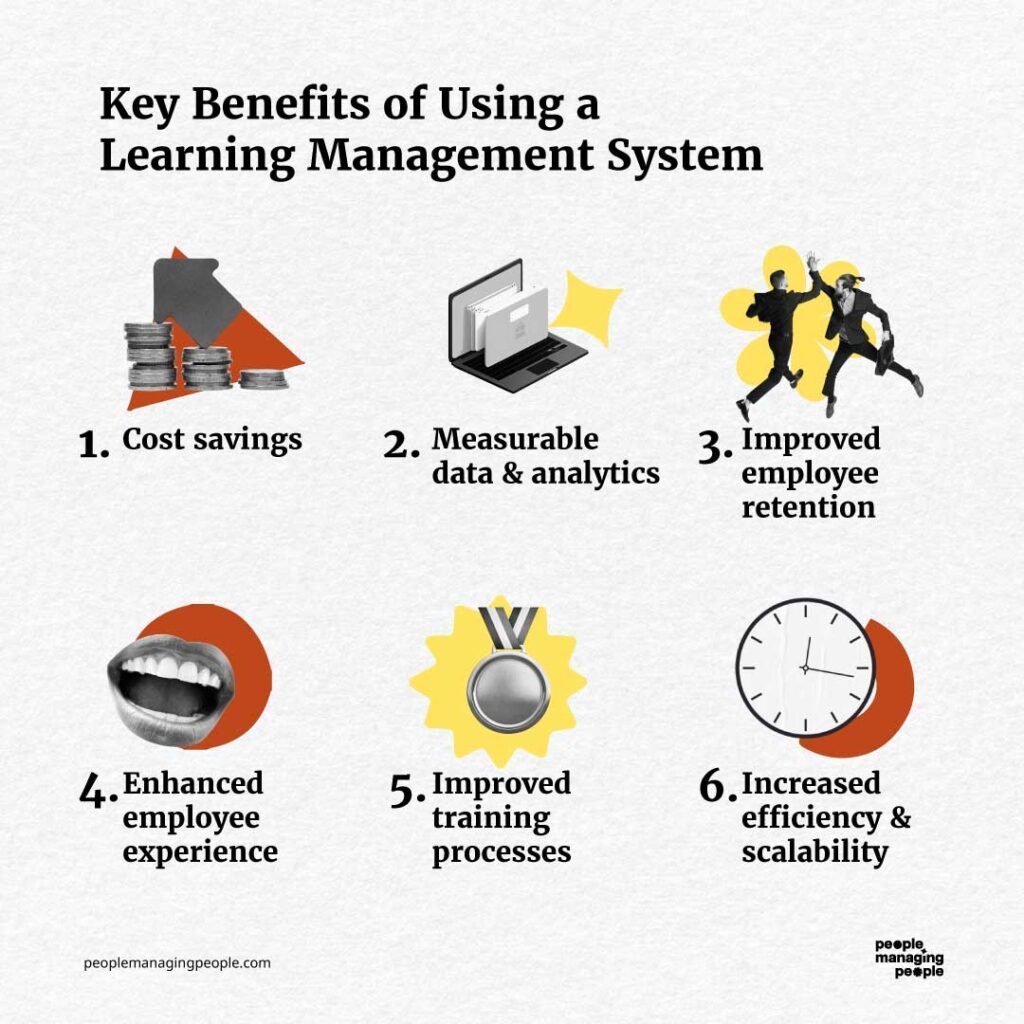
Benefits of a Corporate LMS
Corporate learning management systems are powerful tools for enhancing employee development and organizational growth. Overall, they help streamline training, improve engagement, and ensure compliance while providing measurable results.
Here are several benefits you can expect to gain by implementing a corporate LMS:
- Scalable learning programs: By using a corporate LMS, organizations can deliver training to a growing workforce without increasing administrative overhead, ensuring consistent learning experiences across teams.
- Improved employee engagement: Interactive features like gamification, quizzes, and multimedia content keep employees motivated and invested in their learning journeys.
- Enhanced compliance tracking: For organizations or industries that require specific training, automated tracking ensures employees complete mandatory training on time, reducing the risk of regulatory penalties while maintaining industry standards.
- Global accessibility: Mobile compatibility and multi-language support enable employees in different locations to access training, fostering inclusivity and supporting a diverse workforce.
- Cost-effective training delivery: Virtual training reduces travel expenses, venue costs, and printed materials, making professional development more accessible and affordable.
These are just a few benefits LMS systems offer, though there are certainly more! If you want more firepower to convince your higher ups that a corporate LMS is really worth the investment, have a read through this comprehensive list of LMS features and benefits too.
Essentially, by investing in an LMS, organizations can foster a culture of continuous learning and position themselves for long-term success.
Costs & Pricing for a Corporate LMS
Corporate learning management systems are typically offered in tiered pricing models to suit different organizational needs, from small businesses to large enterprises. Understanding these options can help you choose a plan that aligns with your budget and training goals.
Here is a breakdown of common plans and pricing options, including features provided at each level.
Plan Comparison Table for Corporate LMSs
| Plan | Average Price | Common Features |
|---|---|---|
| Free Option | $0 | Basic course management, limited users, progress tracking, minimal reporting, and community support |
| Basic Plan | $5–$15 per user/month | Course creation, user management, compliance tracking, mobile access, and basic integrations |
| Standard Plan | $20–$50 per user/month | Advanced reporting, customizable learning paths, gamification, and integrations with HR tools |
| Enterprise Plan | Custom pricing | Unlimited users, branding, API access, multi-language support, dedicated account manager, and analytics |
Each plan offers varying levels of functionality and scalability. Buyers should consider their organization's size, training needs, and budget when selecting the right plan to ensure they get the best value for their investment.
FAQs About Corporate Learning Management Systems
Here are some answers to frequently asked questions you may have about corporate LMS systems and how they work:
How do I choose the right LMS for my organization’s needs?
Start by mapping your learning goals and user requirements. Look for LMS platforms that align with your training objectives, preferred delivery formats, and reporting needs. Test different platforms with free trials or demos and involve key stakeholders and a sample of end-users to gather feedback. Check for scalability and reliable customer support to ensure your LMS can grow with your company.
What's the difference between an LMS and a Training Management System?
A Learning Management System (LMS) is designed to deliver, track, and manage online learning and e-learning content for your employees. It supports features like course creation, assessments, progress tracking, and reporting for digital learning experiences.
In contrast, a Training Management System (TMS) is focused on organizing and administrating instructor-led training, workshops, and classroom events (both in-person and virtual). A TMS handles logistics like scheduling, venue management, registrations, and resource allocation.
Some platforms combine both LMS and TMS features, but they serve different primary purposes: LMS for digital learning delivery, TMS for managing live training logistics.
What integrations should I look for in a corporate LMS?
Focus on LMS integrations that connect with your HRIS, payroll, and performance management systems, allowing you to link learning with broader HR processes. Prioritize single sign-on for easy access, as well as integrations with popular tools like Microsoft Teams, Slack, Google Workspace, and video conferencing apps.
Seamless integrations save time by syncing user data, reducing manual work for admins, automating workflows, and tracking learning progress alongside other business metrics for a smooth learning experience.
How can I ensure high user adoption for a new LMS?
Build buy-in early by involving employees and managers in platform selection and pilot testing. Offer comprehensive onboarding, with hands-on training sessions, quick reference guides, and accessible help resources.
Choose an LMS with a clean, user-friendly interface and strong mobile access. Encourage regular use by promoting executive sponsorship, sharing success stories, and recognizing training milestones through certificates or internal rewards.
Is it possible to customize training programs with most corporate LMS platforms?
Yes, nearly all leading corporate LMS platforms let you fully customize courses and learning paths. You can upload your own presentations, videos, and assessments, mix in third-party content, and design role-specific or department-specific tracks.
Many systems support branded portals and adaptable learning modules, so you can match the platform to your company’s culture and skill development objectives.
How can I measure the ROI of my LMS investment?
Track analytics like training completion rates, test scores, time spent learning, and post-training performance metrics. Use the LMS’s built-in reporting tools to spot gaps, identify trends, and compare learning results to organizational goals such as reduced onboarding time, improved compliance rates, or higher employee engagement.
You can also survey learners and managers to capture feedback and measure qualitative improvements alongside business KPIs.
Other Resources
I hope this list of the best corporate learning management systems helped you get one step closer to finding your system of choice.
To explore this topic more deeply, we also have tips on how to create a learning and development strategy plus a summary of emerging employee learning trends you should definitely familiarize yourself with.
The world of corporate learning management systems is always changing and evolving. We’ll keep you posted as to who is innovating in this space and what that means for your training operations.
Stay in Touch
Lastly, be sure to subscribe to our newsletter to remain up-to-date on all the latest in people management. You'll receive insights and offerings tailored to leaders and HR professionals straight to your inbox.




